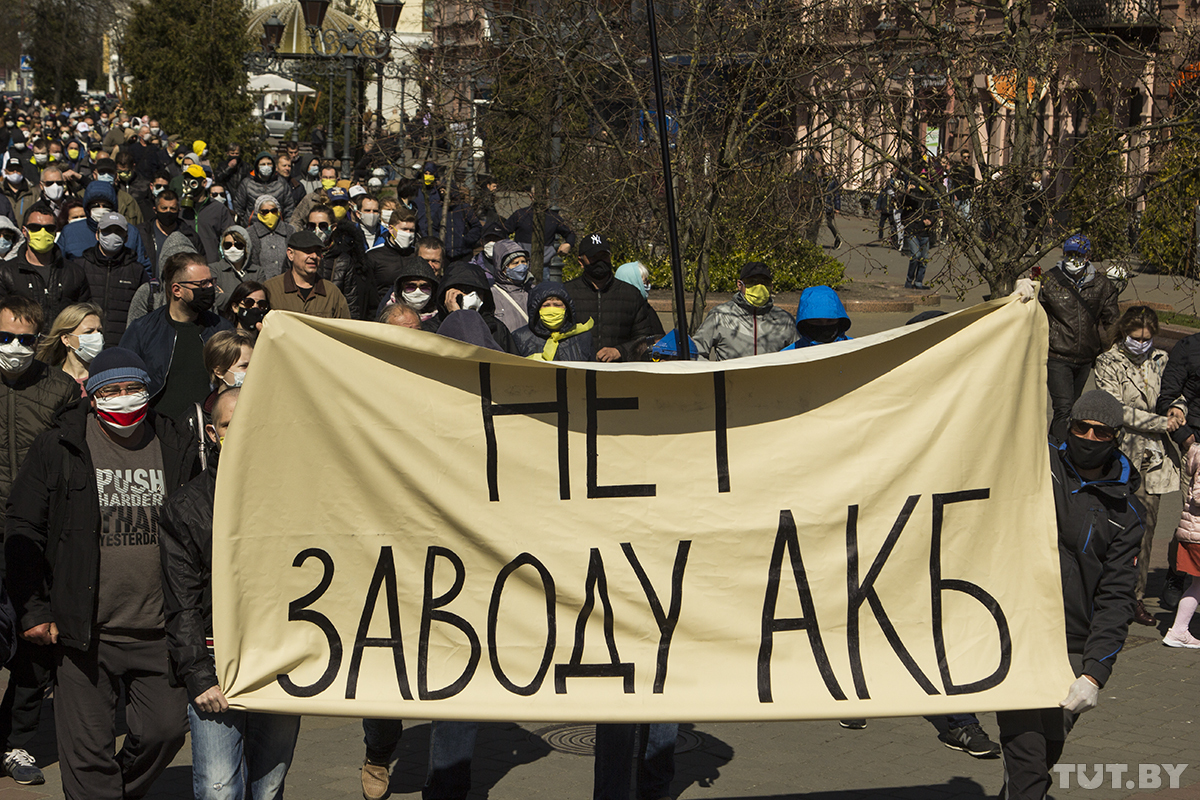Political organizations develop communication channels with their audiences; public manifestations held in Brest
 The situation has not changed
The situation has not changed

By Zmicier Kuchlej
Organizers of conventional oppositional rallies have abandoned public protest activity and attempt to promote the online voting in the primaries campaign among their supporters. The protest movement opposing the battery plant operations in Brest has not suspended public protests and enjoys broad support among residents.
Independent trade unions have brought the COVID-19 situation in Belarus to the attention of international trade unions, which prompted the International Labor Organization’s response to the government’s plan to hold a nationwide subbotnik (work-for-the-nation day) amidst the coronavirus outbreak.
Due to the coronavirus outbreak, the Chernobyl Path Organizing Committee has abandoned plans to hold a traditional procession and a rally to commemorate the Chernobyl tragedy. Simultaneously, political organizations are unlikely to have raised enough funds to pay for the services of public organizations at existing tariffs. It is worth noting that the participants in December protests opposing deeper integration in 2019 yet have not raised enough funds to pay the full amount of issued fines.
Simultaneously, those protesting the battery plant operations in Brest continue to gather crowds every Sunday, some 100-200 people regularly protest in the city center. Authorities do not dare to use repressions against environmental demonstrators, however, law enforcers regularly detain, fine, and issue arrests to protest leaders and bloggers. Protesters find response and support among residents and local authorities do not want to politicize these demonstrations.
Political parties continue to appeal to those discontent with the state policies and put pressure on the Belarusian leadership to alter their response to the COVID-19 outbreak and cancel mass events, introduce distance learning, allocate funds in support for healthcare providers, the public and private business. Political organizations (the UCP, For Freedom, Tell The Truth, the BCD, the BSDP (Hramada) have successfully utilized new information and communication technologies to promote their agenda online through collective petitions, video streams, and instant messengers (Telegram and Viber).
Overall, civil society and political organizations have altered their approach to reach out to their audiences during the time of a pandemic, avoiding financial restrictions on the organization of mass events. Amid unpopular public policies addressing the coronavirus outbreak, political parties are likely to build their audiences.
Subscribe to our newsletter




Situation in Belarus
Constitutional referendum: main consequences


 Video
Video
How to count the political prisoners: are the new criteria needed?


 Video
Video
Paternalism In Decline, Belarusian Euroscepticism, And The Influence Of Russia


 Video
Video












